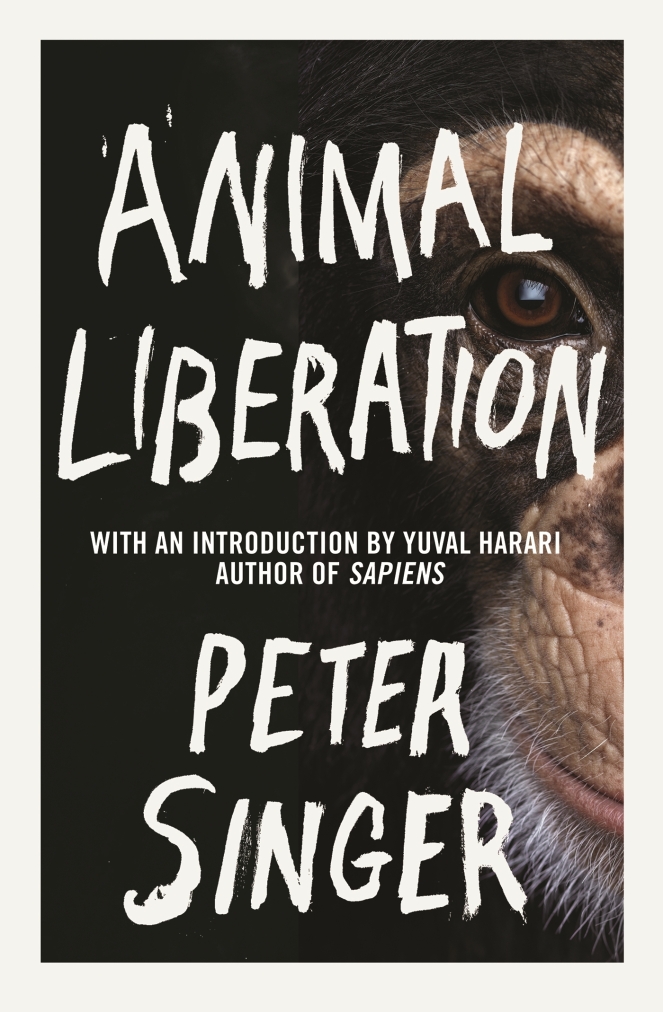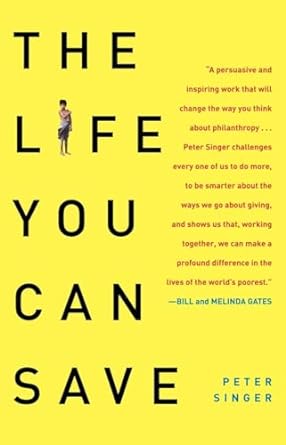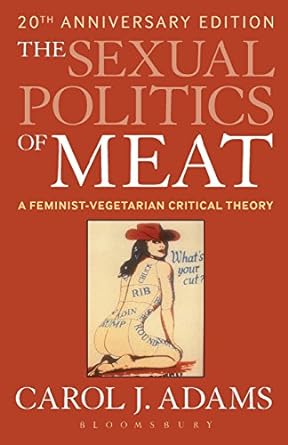“Racists violate the principle of equality by giving greater weight to the interests of members of their own race when there is a clash between their interests and the interests of those of another race. Sexists violate the principle of equality by favoring the interests of their own sex. Similarly, speciesists allow the interests of their own species to override the greater interests of members of other species. The pattern is identical in each case.” –Peter Singer on Animal Rights
“Even if it were true in the Buddha’s day that under some circumstances maybe you would need to eat meat to be healthy, there are so many alternatives available today and especially to somebody in the position of the Dalai Lama, it’s kind of absurd to say that he needs to to eat meat be healthy.” –Peter Singer in Dakini Conversations podcast (2024)
“Animal Liberation (by Peter Singer) started a worldwide movement when it revealed the abuse of animals in factory farms and laboratories. It demonstrated that these and other practices were the cause of appalling and unnecessary suffering and therefore morally indefensible. In the fifty years since, science has further vindicated Peter Singer’s arguments about animal sentience, vegetarianism has become widespread, and the book has helped change the minds of millions. But the situation for animals has in many ways grown worse.” –Introduction to ‘Animal Liberation Now’
For the latest episode of Dakini Conversations podcast Episode 8, Adele Tomlin speaks with Prof. Peter Singer, considered by many to be the “founder of the modern animal welfare movement,” he was recently named one of the most influential people in the world by Time magazine. For people who know about philosophical thinking on animal rights, eating animals, the question of sentience and value, Singer needs no introduction. An Australian philosopher and professor of bioethics at New York and then Princeton University, Singer has contributed to more than 50 books in over 30 languages.
I first came across Singer’s ideas a few years ago (before becoming a Buddhist) while a Philosophy postgraduate student in London and I was studying his works on animals and ethics. It was groundbreaking and inspiring, like reading the Female Eunuch by Germaine Greer (another influential Australian thinker) and I agreed with everything he wrote about animals and our lack of respect and care for them when treating them as food for humans. Shortly after, I became vegetarian. So having the chance to meet and discuss these issues with Singer is like a personal dream come true.
It is difficult to do justice to the breadth and scope of Singer’s influence in the world of animals rights and liberation, but here is a short introduction. His ideas have been provocative to say the least. Singer’s parents were Austrian Jews who immigrated to Australia from Vienna after Austria’s annexation by Nazi Germany in 1938. Singer was born 8 years later in 1946 and he is now 77 years old. After becoming a vegetarian at Oxford University and during a visiting professorship at New York University in 1973–74, he wrote what would become one of his most influential works, Animal Liberation: A New Ethics for Our Treatment of Animals (1975). In this ground-breaking book, Singer challenges the speciesism of human beings who kill animals to eat, stating that if we did the same thing to humans with a similar level of consciousness/sentience, people would (and do) strongly object. This is just of form of human speciesism which has no rational (or even hedonistic justification). He demonstrated the logical outcome of this by arguing that humans with lower levels of sentience and awareness could be killed too according to the meat-eater’s moral justification. Animal Liberation started a worldwide movement when it revealed the abuse of animals in factory farms and laboratories. It demonstrated that these and other practices were the cause of appalling and unnecessary suffering and therefore morally indefensible. In the fifty years since, science has further vindicated Peter Singer’s arguments about animal sentience, vegetarianism has become widespread, and the book has helped change the minds of millions. But the situation for animals has in many ways grown worse.
In 1999, after teaching at New York University, Singer became a Professor at Princeton University. This appointment was protested by people who objected to his view on euthanasia. he has been termed a ‘dangerous’ philosopher by some, in terms of his view challenging the status quo on such sibjects.
In 2009, Singer wrote the first edition of The Life You Can Save (to complement his essay Famine, Affluence and Extreme Poverty) to demonstrate why we should care about and help those living in global extreme poverty, and how easy it is to improve and even save lives by giving effectively (see: https://www.thelifeyoucansave.org/). In 2018, Singer also co-founded the open-access Journal of Controversial Ideas along with bioethicist Francesca Minerva and moral philosopher Jeff McMahan. Now, nearly 50 years on, Singer has published a revised version titled Animal Liberation Now.
Singer also recently entered into a discussion of Buddhist ideas and ethics with a Taiwanese Buddhist nun, who is a leading advocate for animal rights and a key figure in the Buddhist gender equality, Venerable Shih Chao-hwei, in the publication of their new book, The Buddhist and the Ethicist: Conversations on Effective Altruism, Engaged Buddhism, and How to Build a Better World published by Shambhala this year. He also recently launched “Bold Reasoning” on Substack publishing conversations on various topics to a broader audience. For more on Singer, see his website: https://www.petersinger.info/. For research and articles on Buddhism and Animals/Vegetarianism on this website, see here.
Dakini Conversations discussion

In our podcast discussion, we first spoke about Singer’s Austrian Jewish heritage background and the Nazis treatment (and murder) of his own family members, then about how and why he decided to become a vegetarian as a postgraduate student at Oxford University, and early influences such as the book Animal Machines by Ruth Harrison and Victims of Science by Richard Ryder (the person who was said to have coined the phrase ‘speciesism’).
This is followed with some discussion of his renowned book Animal Liberation, and its content and ideas, including why people objected to it. We also discuss the glaring gap between religious practice of love and compassion, such as in Buddhism, when it comes to eating slaughtered animals, including what Singer terms the ‘absurdity’ of the 14th Dalai Lama eating meat for ‘health reasons’ (see clip here). Singer and I agreed that these days, especially in places like India, there was no good reason to eat animals for health or for pleasure, and that even in places like Tibet, many great Buddhist masters had chosen strict vegetarian diets. For example, the Tibetan Buddhist master, 17th Gyalwang Karmapa has given extensive teachings on the importance of not eating slaughtered animals (or supporting those who kill them), which I have compiled into a document with images, here.

This was then followed by a discussion of his other influential essay, Affluence, Morality and Poverty, and his later book The Life You Can Save, in which Singer asserts that it is immoral for people with greater wealth and luxury than they need not to give/help those in much less fortunate situations. Comparing it to a drowning child and not wanting to get expensive shoes were to save the child, Singer argues affluent people have the same moral obligation to save people’s lives by giving and helping. I counter-argued that this is in accordance with the Buddhist idea of giving and protecting from harm but that there is also the idea of ‘idiot/unwise’ compassion, by which giving and compassion alone are not sufficient for an act to be genuinely beneficial.

We also consider why Buddhist cultures, patriarchal religions and cultures continue to disregard the sentience of animals and murder them to eat in mass factory farms, or for health reasons. We briefly discuss the fact that even the 14th Dalai Lama says he eats meat for health reasons, albeit that the Buddha never taught that animals could be eaten for health, and in fact taught that monastics should absolutely not eat it, other than in the context of begging for alms (and even then they have to check and be 100 percent sure that the animal had died naturally and not been specifically killed to eat).
We end the discussion with Singer explaining the background to his new book, The Buddhist and the Ethicist, and how the Taiwanese Buddhist nun, Shih Chao-Hwei, who collaborated with him on it, was renowned for her work on animals and gender equality. Singer cited an instance when Chao-Hwei attended a conference at which the 14th Dalai Lama was present and she unhurled some banners about women’s lower status in Buddhism and ripped them up on the stage. A Sinead O’Connor moment by the sound of it! (Reminded me of my own recent (and censored) presentation at the Bhutan Vajrayana conference in which I showed the famous photo of Sinead O’Connor ripping up the photo of the Pope while stating ‘Fight the Real Enemy’.)
We then briefly spoke about the parallels that have been drawn between the sexual objectification and commodification of women’s flesh/bodies and animal flesh sold as food, such as that of Carol Adams, in her groundbreaking book, the Sexual Politics of Meat.

Outline/chapters of the Discussion
00:00:00 Introduction
00:03:15 Biographical background: Jewish family from Austria escaping Nazi occupation
00:06:29 Maternal grandfather Oppenheim wrote a paper with Sigmund Freud, murdered by the Nazis
00:07:39 Impact of that on studying ethics and philosophy?
0:09:51 Oxford University as a postgrad, Vietnam War activism, and becoming vegetarian/animal rights
0:13:03 Speciesism and the Animal Liberation book (1975)
0:14:50 Buddha as the first to expose and advocate against ‘speciesim’ and the Buddhist perspective
0:16:17 Buddhist cultures/countries that consume meat and the hypocrisy and lack of care for animals in world religions
0:17:29 The controversy over Animal Liberation and following meat-eating rationale of ‘lacking consciousness/awareness to its logical and ‘outrageous’ conclusion
0:21:51 The disconnect between religious ideas, empathy for animals and daily diet
0:24:41 The ‘absurdity’ of the 14th Dalai Lama (and others) eating animals for ‘health’
0:26:06 Parallels between the Nazi genocide and animal genocide in mass factory farms
0:28:51 The environmental impact of mass breeding and slaughter of animals and climate change
0:31:09 “If Slaughterhouses had glass walls….”Reasons why people continue to eat animals and possible methods to stop it, such as higher taxes
0:33:32 Famine, Affluence and Morality essay and the ‘drowning child’ thought experiment and the ethical obligation to help those in need
0:39:05 The counter-argument about proximity and the Buddhist idea of ‘idiot compassion’ where giving out of compassion alone is not sufficient to guarantee genuine help short, or long-term
0:43:03 The Life You Can Save book and organisation to encourage people to give
0:44:01 The Buddha’s idea of getting at the roots of suffering and why giving alone does not eradicate it
0:45:49 Practical help is important even if it does not eliminate greed and causes of extreme poverty
0:47:46 The issue of the ‘super-rich’
0:49:39 The Buddhist idea of eradicating the roots of extreme poverty and inequality such as greed and making such material excess socially shameful
0:51:28 The new book The Buddhist and The Ethicist: Discussion with a Taiwanese Buddhist nun, Venerable Shih Chao-hwei
0:54:33 Parallels between sexist objectification of women as ‘pieces of flesh’ for consumption and meat industry and radical activism on these issues
0:57:17 Venerable Shih Chao-hwei’s tearing up the rules in front of the 14th Dalai Lama
0:59:43 The changing role of women in religions and Buddha’s feminist ideas
1:00:56 AI and animal welfare
1:03:36 The psychological impact of being a butcher in mass factory farms and Buddha’s teaching on not supporting wrong livelihoods


Speciesism is the mother of all other ism’s…
Questioning traditions and taming egos allows morality and kindness to sprout and spread…
When the heart grows bigger than the stomach, there is only one choice…
Best wishes and big thanks for the reminders…
Get Outlook for iOShttps://aka.ms/o0ukef